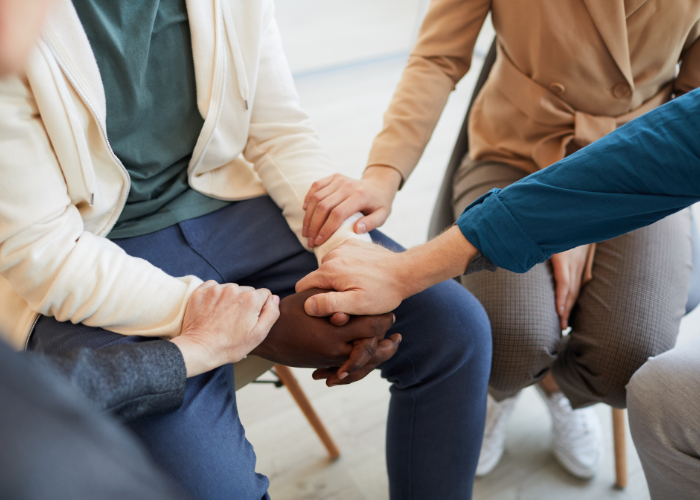Grief is a deeply personal experience, but no one should have to walk that path alone. Community support groups offer a safe space to connect with others who understand the unique challenges you’re facing. Whether you’ve lost a loved one, are facing a chronic illness, or navigating a life transition, these groups can provide invaluable support throughout the grieving process.
Understanding Grief
Grief is a natural human response to loss. It’s a complex emotional journey with no set timeline. You may experience a wide range of emotions, including sadness, anger, guilt, and loneliness. These feelings can be overwhelming and isolating.
Support groups provide a space to share your experiences without judgment. Hearing from others who have walked a similar path can validate your feelings and offer a sense of normalcy.
The Benefits of Support Groups
There are numerous benefits to joining a grief support group. Here are some key ways they can help:
- Emotional Support: Sharing your feelings with others who understand can be incredibly cathartic. Knowing you’re not alone can ease the burden of grief and provide a sense of belonging.
- Coping Strategies: Support group members can share tips and techniques for managing difficult emotions and navigating the practicalities of loss.
- Information and Resources: Groups can provide valuable information about grief and related topics, as well as connect you with additional resources that can be helpful.
- Sense of Community: Building friendships with others who understand your experience can offer a powerful sense of connection and belonging.
Finding the Right Support Group
Support groups exist for a wide range of situations. When searching for a group, consider factors like:
- Focus: Choose a group that addresses your specific needs, whether it’s grief after a spouse’s death, coping with a chronic illness, or supporting someone with addiction.
- Meeting Format: Groups can meet in person, online, or a combination of both. Choose a format that works best for your schedule and comfort level.
- Size and Structure: Some groups are small and informal, while others are larger and more structured. Consider what kind of environment would feel most comfortable for you.
Tips for Getting the Most Out of Your Support Group
Here are some tips to maximize your experience in a support group:
- Be open and honest: Sharing your feelings can be difficult, but it’s the cornerstone of a supportive environment.
- Listen actively: Be present and supportive for others in the group.
- Respect boundaries: Not everyone is comfortable sharing everything. Respect the privacy of others.
- Focus on yourself: While offering support to others, prioritize your own needs and well-being.
- Take breaks when needed: Grief is a marathon, not a sprint. Take time for self-care when needed.
Remember: Joining a support group is a personal decision. If one group isn’t a good fit, don’t be discouraged. There are many options available, and finding the right one can make a significant difference on your journey through grief.


